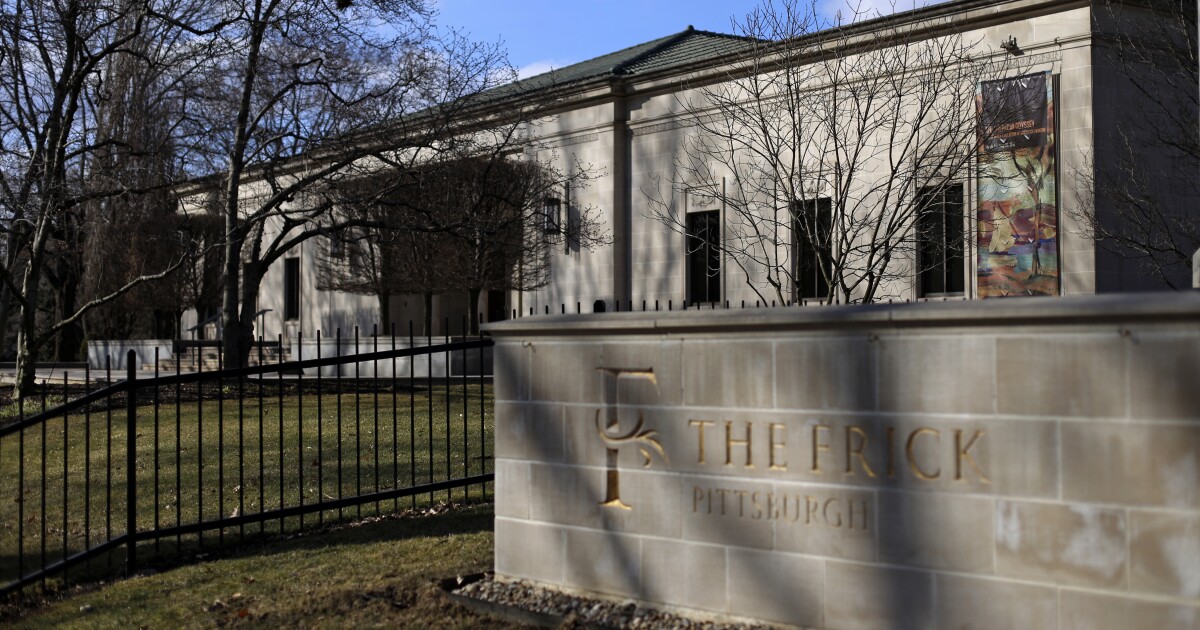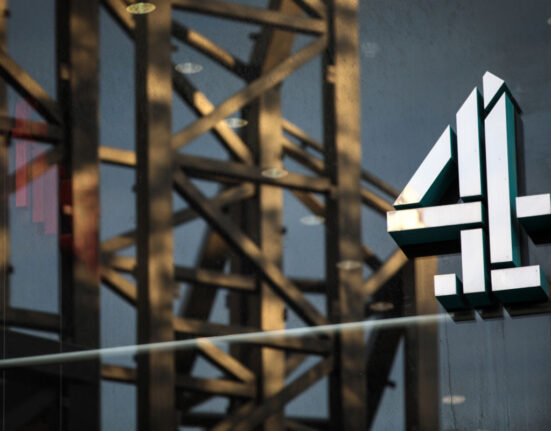After postponing an exhibit of traditional Islamic art earlier this week because of the Israel-Hamas war, the Frick Pittsburgh has rescheduled it for next summer, saying it will use the extra time to add context and additional programming to the exhibit.
The art museum in Point Breeze announced today that it now will host the traveling exhibit “Treasured Ornament: 10 Centuries of Islamic Art” in August 2024. The touring exhibit features glassware, ceramics, metalwork, painting, weaponry, weaving and other items from countries across the Middle East.
The Frick’s announcement of a new date for “Treasured Ornament” came less than a week after its initial decision to indefinitely postpone the exhibit, which stirred controversy and criticism that the postponement linked Islamic culture to ongoing violence in Israel and Gaza.
“The Frick is devastated to have hurt neighbors we deeply respect with our unclear communication about the postponement of this exhibition featuring 10 centuries of Islamic art,” the Frick said in a statement Friday. “We will work earnestly to repair our relationships with the Muslim community.”

The Frick announced its booking of the “Treasured Ornament” exhibit in early October — days before Hamas attacked Israel — and planned to open it Saturday, Nov. 4 before postponing it.
Initially, the Frick said it had postponed “Treasured Ornament” until further notice, citing “an unforeseen scheduling conflict.” But earlier this week, museum officials acknowledged that they did so out of concern that, during wartime, the exhibit might offend some members of the local community.
“When violence broke out, the conflict in the Middle East, we recognized that the exhibition needed more context and local intentionality,” Frick Executive Director Elizabeth Barker told WESA earlier this week.
“And rather than have the exhibition become a divisive political touchstone, something that might have caused offense to our community and distracted from our core work, we thought it would be wise to postpone and return to the subject when we had more time to present it with a richer context and perhaps most importantly to partner with local organizations to make sure our show resonates with the community here in the Pittsburgh region,” she said.
Instead, the decision proved to be confusing to some and controversial to others in Pittsburgh.
Christine Mohamed, executive director of the Pittsburgh chapter of the Council on American-Islamic Relations, could not be immediately reached Friday for comment on the decision to reschedule “Treasured Ornament.” But on Monday, she criticized the postponement as “disheartening” and called on the Frick to reconsider it.
“I’m afraid statements that conflate Islamic tradition or the Islamic world as terrorists [are] dangerous. It’s dangerous to our community that has already suffered,” she said on Monday, noting that the 19th-century art in the exhibit did not reference the Israel-Hamas conflict.
“We’re talking about Islamic art and tradition that is very broad,” she said on Monday. “And to conflate it with terrorism is just disheartening.”
A spokesperson for the Jewish Federation of Greater Pittsburgh also expressed puzzlement at the postponement, saying members of the Jewish community understand that the Islamic art has no relation to Hamas.
In its statement Friday, the Frick said it chose to postpone “Treasured Ornament” to gain time in which it will add historical context and develop community partnerships to prepare interpretational and education programming around the exhibit.
“When the Frick Pittsburgh booked this touring exhibition years ago, it seemed suitable. The emphasis on design and materials across ten centuries of Islamic art connected this show to recent Frick exhibitions on Fabergé and Art Nouveau jewelry. As we looked more deeply at the show, we became concerned by the light historical context and our lack of engagement with the regional Muslim community. We know that great exhibitions require deep and meaningful community partnerships …” the museum said in its statement.
“For Treasured Ornament, we hadn’t yet engaged with the community. And we felt a responsibility to invest additional time to develop those partnerships to shape this venue of the traveling show and our educational programs here in Pittsburgh. To proceed without the participation of the Muslim community risked trivializing and objectifying Islamic culture as merely decorative,” the statement said.







